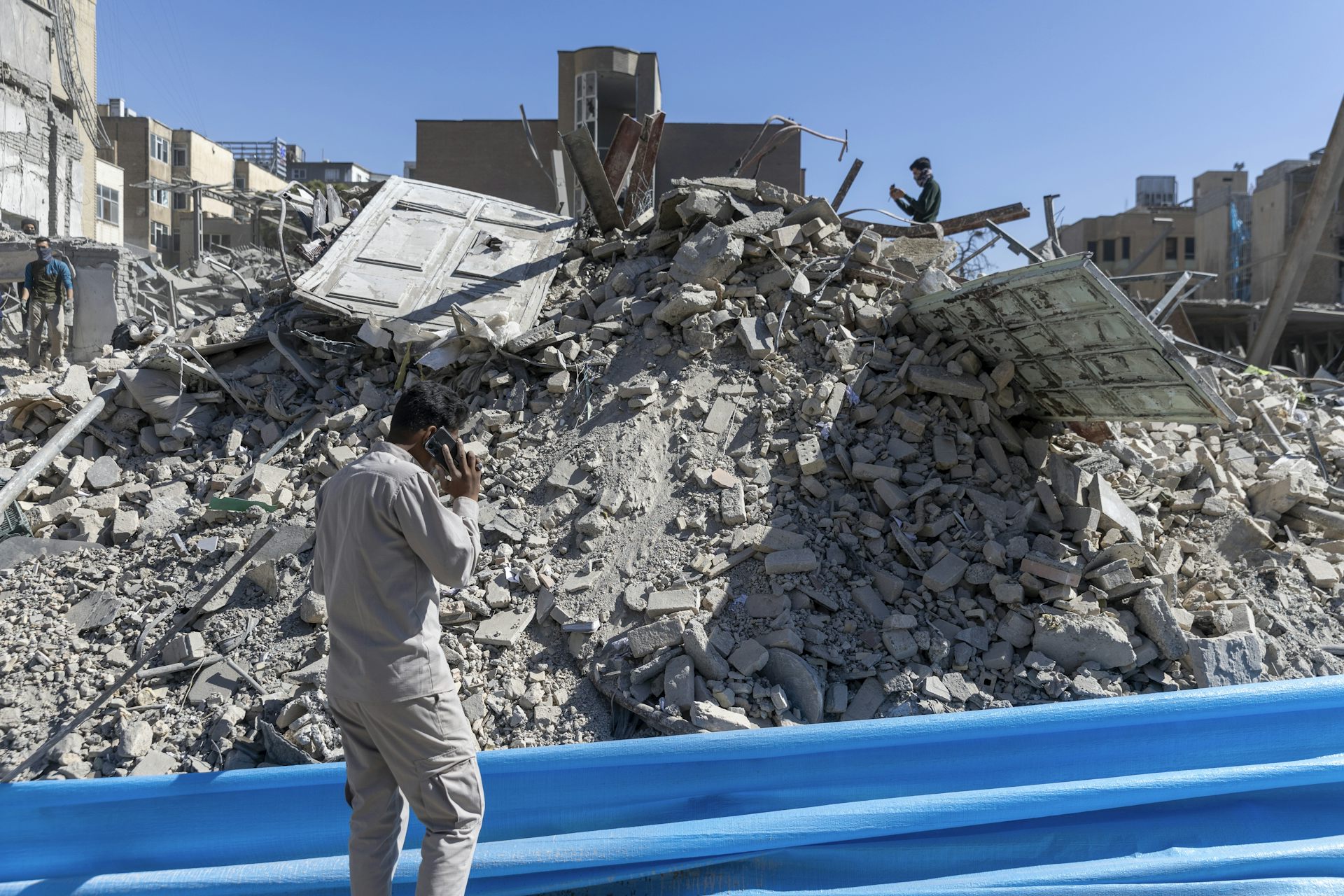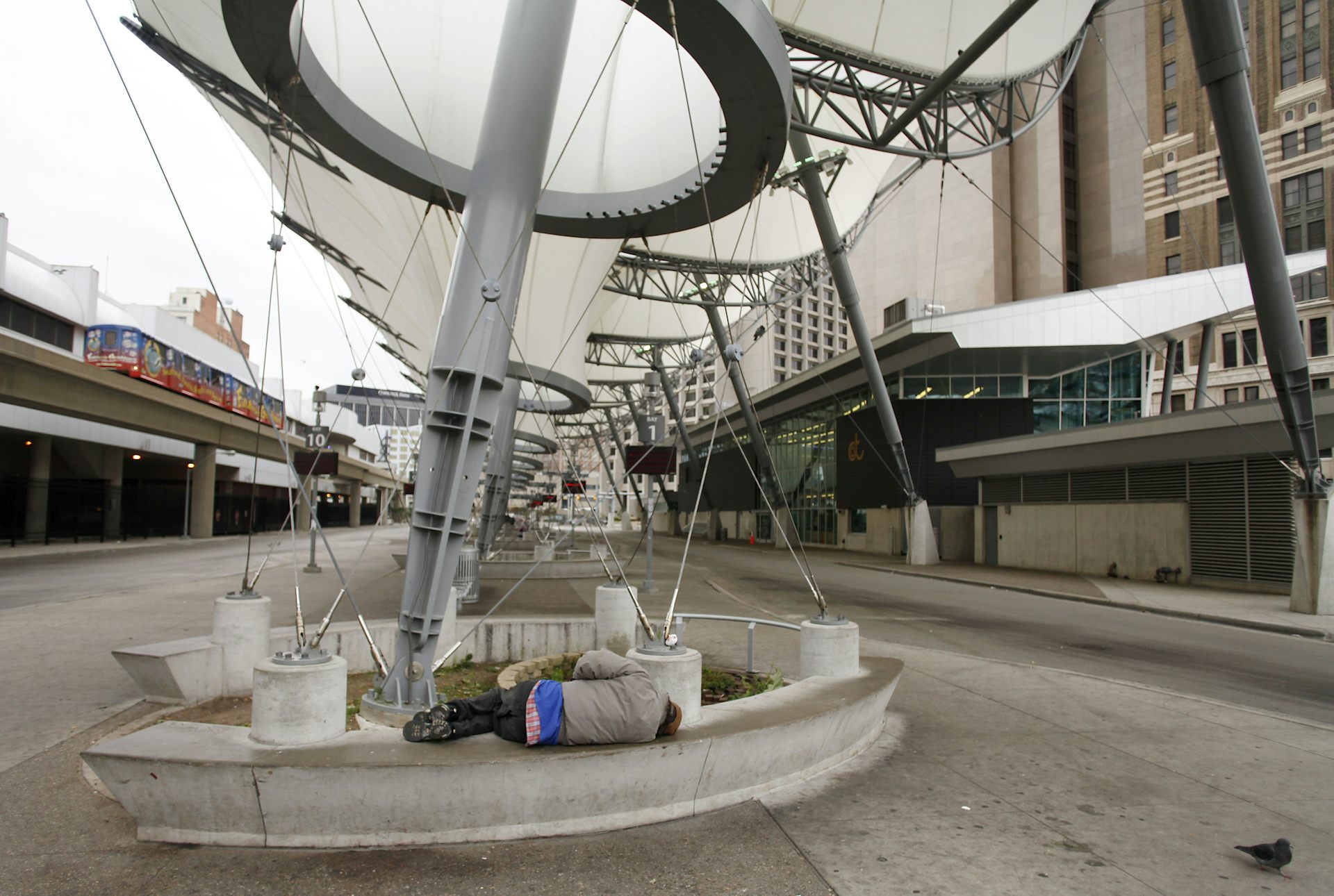Why restoring morale is important to mental health in difficult times
Terrorism, confusion and fear are leaving many feeling demoralized. While not quite on the level of depression, demoralization is still something to pay attention to. Here are some ways to do that.

The term demoralization was originally coined in the 1970s by a psychiatrist who was seeing patients that didn’t quite meet full criteria for major depression. Nonetheless, they were suffering – in a shared state of emotional distress and sense of incompetence.
For many Americans, we are experiencing this now. Events such as the recent terrorist attacks in London and the fatal Portland train stabbings break our hearts and, some days, come close to breaking our spirits. We feel discouragement, confusion and uncertainty mixed with collective impotence.
And, political divisions seem to be running as deep as they ever have. People of all political persuasions have lost confidence and trust in one another and some of our institutions. And, for many people, it feels as if our country is failing to live up to expectations and ideals.
As a clinical psychologist and associate professor at Yale School of Medicine, I’m concerned about our collective mental health. I know that the effects of horrific events such as the London Bridge and Manchester terror attacks affect us all, at least in some small or significant way. I also believe that there are some steps to take to help us heal.
Effects of demoralization
Numerous studies have shown the negative effects of demoralization on individuals with life-threatening medical diseases like cancer and acute coronary heart disease, or heart transplant recipients. In these populations and others, demoralization was highly related to adverse health outcomes. Those who felt deeply disheartened and incapable of doing anything about it had more physical, psychological and social impairments.
But our current sense of disempowerment and despair threatens not just the integrity of our individual body and mind. Collective demoralization impacts our relationships, sense of community and willingness to work together to engage in much-needed restoration. Our social fabric is torn. We’re disconnected and mistrustful. And the current situation looks grim.
Coming together soon, or even ever again, may seem impossible. The divide is too deep and wide. Our fists are clenched. For so many, our voices seem unheard and our prayers unanswered, even as we know that many others rejoice in the actions of the new administration.

But restoring morale and hope is essential in rebuilding and recovery of our great nation.
Evidence-informed principles could help
When morale and hopes are raised, people adopt a more problem-solving approach. That makes sense. We don’t put in the effort unless we think we can effect positive change.
One way to promote a sense of morale and a return to reasonable confidence is to look to our commonalities and build upon them. We need reassurance that we care for one another, are part of the same team and are on an equal plane. We need to problem-solve together – sanely, respectfully, allowing our voices to be heard and honoring each others’ perspectives.
As a trauma psychologist, I know that there are things that can be done to stimulate hope and things that inhibit it in the aftermath of community trauma. There are sound evidence-informed principles that help people recover post-disaster or post-terrorism. Maybe we can apply these principles to current difficult times.
A number of years ago, the National Child Traumatic Stress Network and the Department of Veterans Affairs’ National Center for PTSD built an approach called Psychological First Aid to help children, adolescents, adults and families in the aftermath of trauma regain their emotional equilibrium. The method is built around eight core concepts whose titles are fairly self-explanatory:
- Contact and engagement
- Safety and comfort
- Stabilization
- Information gathering
- Current needs and concerns
- Practical assistance
- Connection with social supports
- Information on coping and linkage with collaborative services
It might be beneficial for us to think of and use Psychological First Aid as part of a national therapy program, of sorts. These times seem so challenging for so many, and to some (like myself) even mentally toxic.
Rather than staying in our heads with all the negativity and fears, we reach out and connect to others and engage in issues that are important to us.
For example, you may be terribly distressed that the oldest and largest national organization supporting community-based senior nutrition programs across the country, Meals on Wheels, is facing serious cuts in President Trump’s 2018 budget. Rather than feeling powerless, you can help yourself and others by volunteering to collect or bring food to those in need.
Additionally, Psychological First Aid can be used as reminder to take good care of ourselves.
When people feel depressed, they tend to shut themselves in, literally – stop engaging in their routines, stay inside and away from people. These are the times that we need to make sure we are eating and sleeping well and engaging in good self-care.
There appears to be no end in clear sight for these troubling times – be it international terrorism or national divide and derision.
In the interim, taking some pages from the research on trauma recovery might help: Take care of ourselves and others, and lock arms for peace and prosperity.
Joan Cook receives funding from the National Institute of Mental Health and the Patient-Centered Outcomes Research Institute.
Read These Next
GLP-1 drugs may fight addiction across every major substance, according to a study of 600,000 people
GLP-1 drugs are the first medication to show promise for treating addiction to a wide range of substances.
Hezbollah − degraded, weakened but not yet disarmed − destabilizes Lebanon once again
Hezbollah’s entry into the current war followed the killing of Ayatollah Ali Khamenei. The group has…
Congress once fought to limit a president’s war powers − more than 50 years later, its successors ar
At the tail end of the Vietnam War, Congress engaged in a breathtaking act of legislative assertion,…






